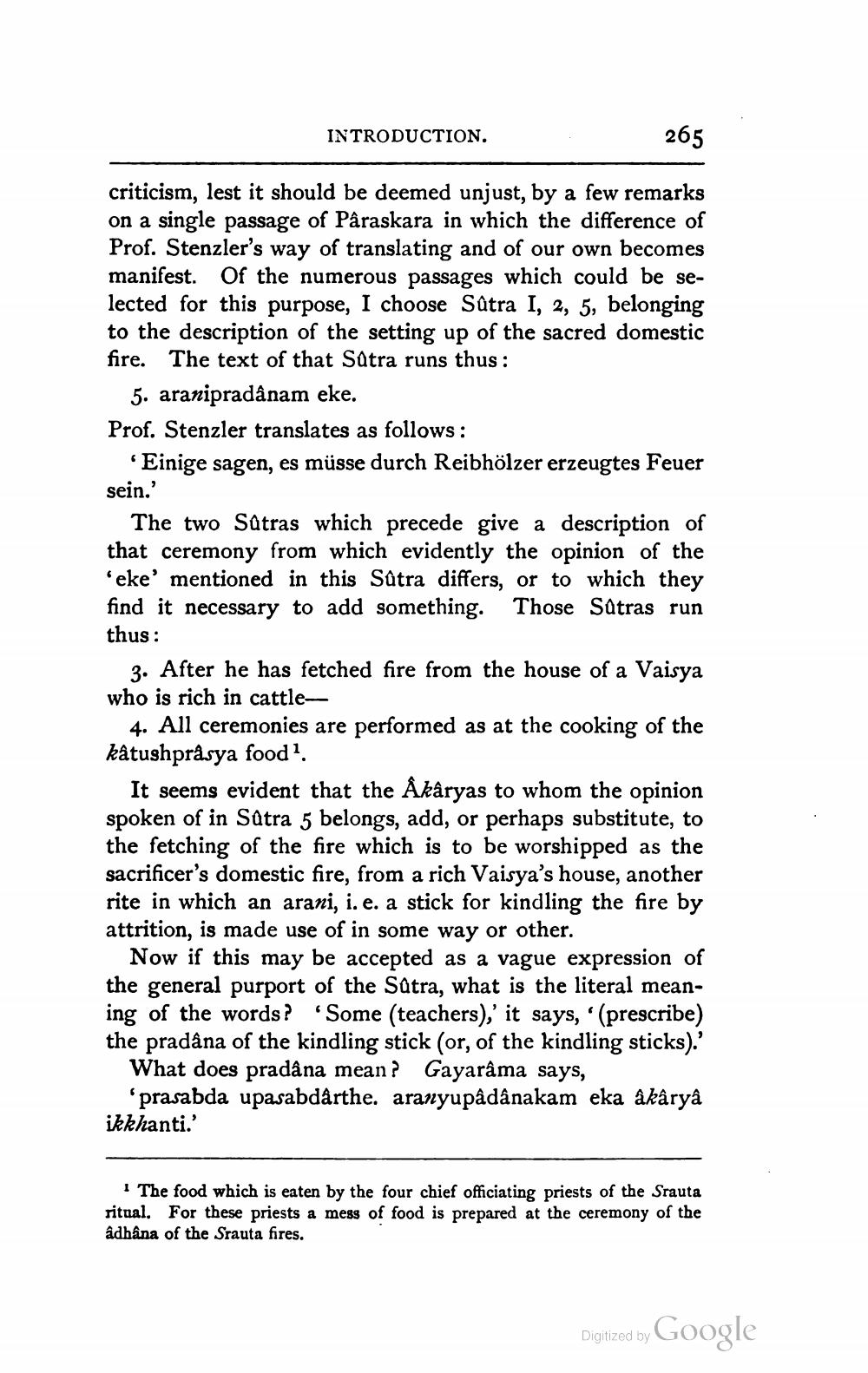________________
INTRODUCTION.
265
criticism, lest it should be deemed unjust, by a few remarks on a single passage of Pâraskara in which the difference of Prof. Stenzler's way of translating and of our own becomes manifest. Of the numerous passages which could be selected for this purpose, I choose Sätra I, 2, 5, belonging to the description of the setting up of the sacred domestic fire. The text of that Satra runs thus :
5. aranipradânam eke. Prof. Stenzler translates as follows:
'Einige sagen, es müsse durch Reibhölzer erzeugtes Feuer sein.'
The two Satras which precede give a description of that ceremony from which evidently the opinion of the 'eke' mentioned in this Sûtra differs, or to which they find it necessary to add something. Those Sutras run thus :
3. After he has fetched fire from the house of a Vaisya who is rich in cattle
4. All ceremonies are performed as at the cooking of the katushpråsya food?
It seems evident that the Åkâryas to whom the opinion spoken of in Satra 5 belongs, add, or perhaps substitute, to the fetching of the fire which is to be worshipped as the sacrificer's domestic fire, from a rich Vaisya's house, another rite in which an arani, i.e. a stick for kindling the fire by attrition, is made use of in some way or other.
Now if this may be accepted as a vague expression of the general purport of the Satra, what is the literal meaning of the words? 'Some (teachers),' it says, '(prescribe) the pradâna of the kindling stick (or, of the kindling sticks).'
What does pradâna mean? Gayarâma says, 'prasabda upasabdârthe. aranyupâdânakam eka akâryâ ikkhanti.'
" The food which is eaten by the four chief officiating priests of the Srauta ritual. For these priests a mess of food is prepared at the ceremony of the adhâna of the Srauta fires.
Digitized by Google




